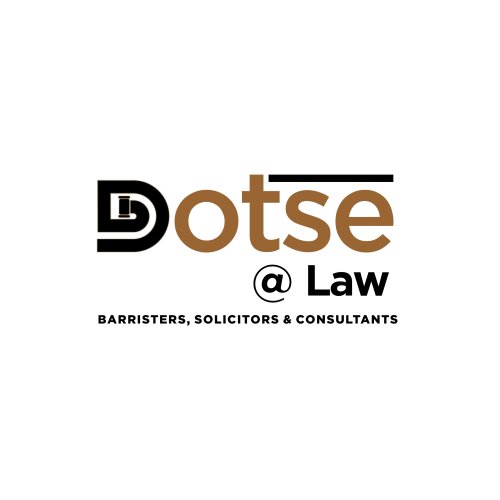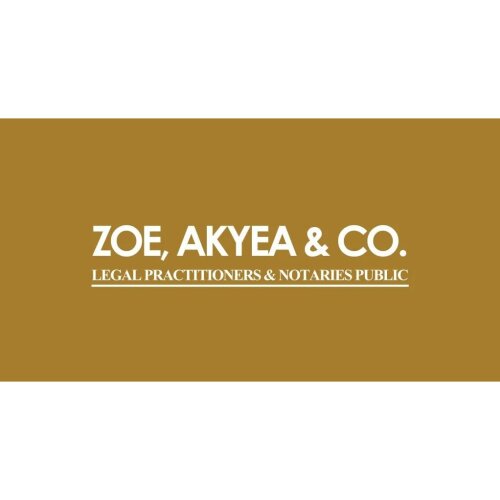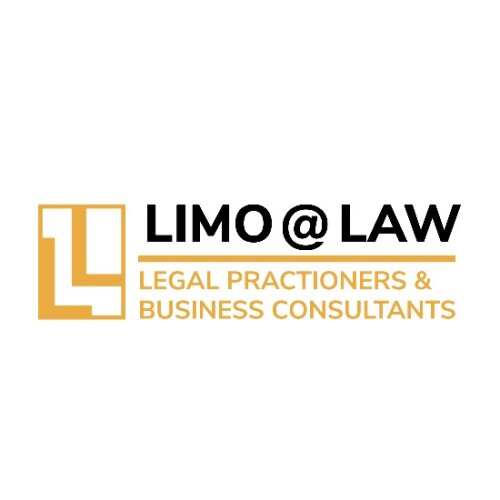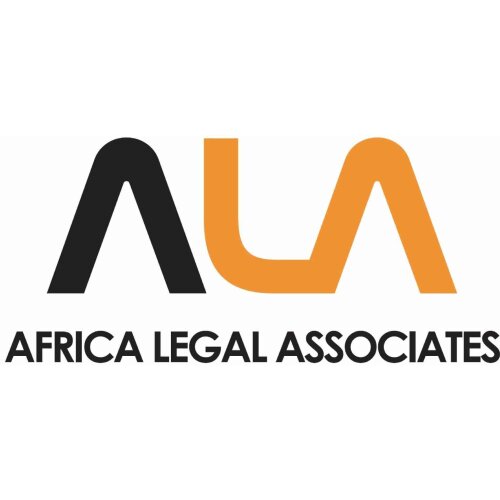Best Bankruptcy Lawyers in Ghana
Share your needs with us, get contacted by law firms.
Free. Takes 2 min.
Or refine your search by selecting a city:
List of the best lawyers in Ghana
About Bankruptcy Law in Ghana
Bankruptcy law in Ghana is a legal framework designed to help individuals and businesses that are unable to meet their financial obligations. The legal process provides the debtor with the opportunity to reorganize or liquidate assets to repay creditors under the supervision of the court. The main objective is to offer relief to the debtor while ensuring fair treatment to the creditors. Ghana's bankruptcy laws are enshrined in the Bodies Corporate (Official Liquidations) Act, 1963 (Act 180) and other relevant legislations that provide guidelines on how bankruptcies should be handled.
Why You May Need a Lawyer
Bankruptcy proceedings can be complex and involve many legal nuances. Here are some common situations where you may require legal help:
- Filing for Bankruptcy: Understanding which type of bankruptcy to file and how to proceed can be challenging.
- Debt Negotiations: A lawyer can help negotiate with creditors for a possible settlement before filing for bankruptcy.
- Legal Representation: During court proceedings, having a lawyer ensures your rights and interests are protected.
- Asset Protection: You may need legal advice to understand which assets can be protected under the law.
- Complex Financial Transactions: Business bankruptcies often involve intricate financial issues that require expert legal interpretation.
Local Laws Overview
Ghanaian bankruptcy law primarily revolves around the Bodies Corporate (Official Liquidations) Act, 1963 (Act 180) for corporations and the Bankruptcy Act, 1962 (Act 153) for individuals. Key aspects include:
- Corporate Bankruptcy: This involves the official liquidation and dissolution of a company when it becomes insolvent and is unable to meet its debts.
- Individual Bankruptcy: Individuals can file for bankruptcy to reorganize or discharge personal debts.
- Debtor and Creditor Rights: The law outlines specific rights and obligations of both debtors and creditors during the bankruptcy process.
- Trustee Role: A trustee is appointed to oversee the bankruptcy process, manage the debtor’s assets, and ensure equitable distribution among creditors.
- Rehabilitation and Reorganization: For some debtors, laws provide for reorganization plans to enable them to continue their business operations while repaying creditors over time.
Frequently Asked Questions
What is bankruptcy?
Bankruptcy is a legal process where individuals or businesses unable to pay their outstanding debts can seek relief under the law, leading to either the liquidation or reorganization of their assets.
Who can file for bankruptcy in Ghana?
Both individuals and corporations can file for bankruptcy if they meet the criteria for insolvency as stipulated in relevant Ghanaian laws.
How long does the bankruptcy process take?
The duration of the bankruptcy process can vary significantly depending on the complexity of the case, the type of bankruptcy filed, and court schedules.
What happens to my assets during bankruptcy?
Assets may be liquidated to pay off creditors. However, certain essential assets may be exempt from liquidation under the law.
Can I discharge all my debts through bankruptcy?
Not all debts can be discharged through bankruptcy. Some debts, such as certain taxes and child support or alimony obligations, are typically non-dischargeable.
Will bankruptcy affect my credit rating?
Yes, filing for bankruptcy will negatively impact your credit rating, and it can remain on your credit report for several years.
Is there an alternative to filing for bankruptcy?
Yes, alternatives include debt settlement, restructuring, and negotiating payment plans with creditors.
What does the role of a trustee involve in a bankruptcy case?
The trustee supervises the bankruptcy process, manages assets, and ensures equitable distribution to creditors.
Can I keep my home if I file for bankruptcy?
Depending on the circumstances and the type of bankruptcy, you may be able to keep your home, especially if it is covered under certain exemptions.
How does bankruptcy affect business operations?
For corporate bankruptcies, operations may continue under a reorganization plan or cease following liquidation, depending on the type of bankruptcy filed.
Additional Resources
For more information and assistance regarding bankruptcy in Ghana, consider reaching out to the following resources:
- Registrar General’s Department: An essential governmental body dealing with insolvency and bankruptcy matters.
- Institute of Chartered Accountants Ghana (ICAG): Provides support for financial and accounting aspects related to bankruptcy.
- Ghana Bar Association: Can provide referrals to qualified legal professionals who specialize in bankruptcy.
- Legal Aid Commission: Offers legal support and advice for individuals who might not afford private legal services.
Next Steps
If you are considering filing for bankruptcy or require legal assistance, here are the steps you should consider:
- Consult with a Legal Expert: Engage with a lawyer who specializes in bankruptcy to understand your legal options and obligations.
- Assess Your Financial Situation: Conduct a thorough assessment of your assets, liabilities, and overall financial condition.
- Gather Necessary Documentation: Collect relevant documents such as financial statements, debt records, and any prior court judgments.
- File for Bankruptcy: If advised, proceed with the formal filing process under the guidance of your legal representative.
- Attend Court Proceedings: Be prepared to participate in any required court hearings during the bankruptcy process.
- Follow Through with Post-Filing Requirements: Adhere to any court orders or trustee directives regarding payment plans or asset distribution.
By taking these steps, you can navigate the bankruptcy process more efficiently and ensure compliance with Ghanaian laws and regulations.
Lawzana helps you find the best lawyers and law firms in Ghana through a curated and pre-screened list of qualified legal professionals. Our platform offers rankings and detailed profiles of attorneys and law firms, allowing you to compare based on practice areas, including Bankruptcy, experience, and client feedback.
Each profile includes a description of the firm's areas of practice, client reviews, team members and partners, year of establishment, spoken languages, office locations, contact information, social media presence, and any published articles or resources. Most firms on our platform speak English and are experienced in both local and international legal matters.
Get a quote from top-rated law firms in Ghana — quickly, securely, and without unnecessary hassle.
Disclaimer:
The information provided on this page is for general informational purposes only and does not constitute legal advice. While we strive to ensure the accuracy and relevance of the content, legal information may change over time, and interpretations of the law can vary. You should always consult with a qualified legal professional for advice specific to your situation.
We disclaim all liability for actions taken or not taken based on the content of this page. If you believe any information is incorrect or outdated, please contact us, and we will review and update it where appropriate.
Browse bankruptcy law firms by city in Ghana
Refine your search by selecting a city.

















